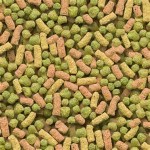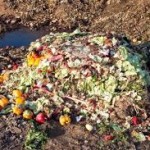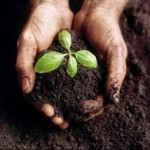The Obama Administration has Proposed to Allow Drilling in the Atlantic Coast.
At first, I thought I was reading it wrong, because there is no way our President, the one who wants to leave a green environmental legacy, would allow big gas and oil companies to start drilling in the coastal waters from Virginia down to Georgia. But I was reading it right! How could he? He knows the associated risks for the environment, climate change, the Eco-system and the wild life, yet obviously, he does not really care. Even the Democratic Senators from Virginia are more excited by the potential revenue stream from the big oil and gas companies, then their concern for the environment. What will happen to the revenue generated from tourism, when their coastal waters are filled with black oil and their fish are dead??Read Tuesday’s New York Times article!
What is in “Sustainable” Fish Food?
When we acknowledge we are all connected, I mean, we are all connected . . . we must question how our fish are raised whether in the wild or in fish farms.? Over the years, we have decimated the population of wild fish through over-fishing and over-consumption.? What better way to restore the environment and still satiate our desire for fish:? fish farms, in the wild blue ocean.? We have images of our fish swimming free, eating sustainably from the environment, their waste getting washed away in the currents . . . how natural.
 This past week at the Food Tank Summit, while listening to a panel with a representative from the World Wildlife Fund, I was shocked to find out that the WWF has partnered with DuPont to create a “sustainable” fish food (of course it is propriety information, so they won’t tell the WWF what it is!) The fish receive this supplemental food in the form of pellets.? In 2011, DuPont partnered with AquaCulture Chile to produce more and more “sustainably” raised fish.? More than a quarter of these fishes’ diet come from manufactured pellets, pellets produced by DuPont, a company which brought us Agent Orange and the Terminator Gene, with the World Wildlife Funds “Seal of Approval!”
This past week at the Food Tank Summit, while listening to a panel with a representative from the World Wildlife Fund, I was shocked to find out that the WWF has partnered with DuPont to create a “sustainable” fish food (of course it is propriety information, so they won’t tell the WWF what it is!) The fish receive this supplemental food in the form of pellets.? In 2011, DuPont partnered with AquaCulture Chile to produce more and more “sustainably” raised fish.? More than a quarter of these fishes’ diet come from manufactured pellets, pellets produced by DuPont, a company which brought us Agent Orange and the Terminator Gene, with the World Wildlife Funds “Seal of Approval!”
To find out more about what’s inside the food our fish eat, and therefore a part of what we consume unknowingly, please watch one of my favorite TEDx talks by Chef Dan Barber.
We Produce Food Just to Throw it Out
We tend to take our food for granted in the developed world. Since food is so plentiful, we aren’t aware of the tremendous amount that’s wasted and the impact that has on world hunger, political stability, the environment, and climate change. Yet when it comes to looking for ways to curb greenhouse gas emissions, food wastage is a relatively easy fix?the low-hanging fruit, so to speak?and it is literally rotting on our tables or in the fields. It doesn’t require any new technology, just more efficient use of what we already know and have.
Food wastage comes in two forms. About one-third occurs at the consumer level, in countries like ours, where we buy too much and throw it away. Approximately two-thirds happens at the production and distribution level in developing countries, where they don’t have the infrastructure or refrigeration to keep it fresh.

The dividends of avoiding food waste can be historic. We produce enough food to feed everyone on our planet today and the 2.5 billion more people to come in the next 35 years. We have to waste less to feed more. Farming already uses 38 percent of our ice-free land, compared to just 2 percent for cities, and uses 70 percent of our fresh water. We can’t keep growing more food, and continuing to waste as much, to feed more people. The environmental dividends are no less significant: lower climate emissions from a major source and more water efficiency to combat growing water scarcity.
Read more about ways in which we can change so that less food ends up in landfills.
Organic vs. Conventional Vegetables
A recent study by a team of researchers at Newcastle University offers some of the best evidence yet that healthy soils lead to healthier plants, and, very likely, healthier people.? They found that organic crops contained an average of 17 percent more antioxidants than the conventional ones.
When we think about plants as eaters, much like ourselves, our current USDA Certified Organic standards come across more as a stringent list of what not to do.? This is helpful to keep chemicals out of our soil and bodies, yet we all know from strict diet regimes we have little to no satisfaction, resulting in greater cravings and unhealthy eating habits.
To truly reap the potential of paying attention to what our food plants eat, we need to put them on a more comprehensive diet: the kind that emphasizes eating the good stuff, rather than just avoiding the bad stuff.? Just think how happy your body is with fresh home made meals rather than take out for the third time today.
Read more about how healthy soils = healthy plants = healthy people.


Comments are closed.